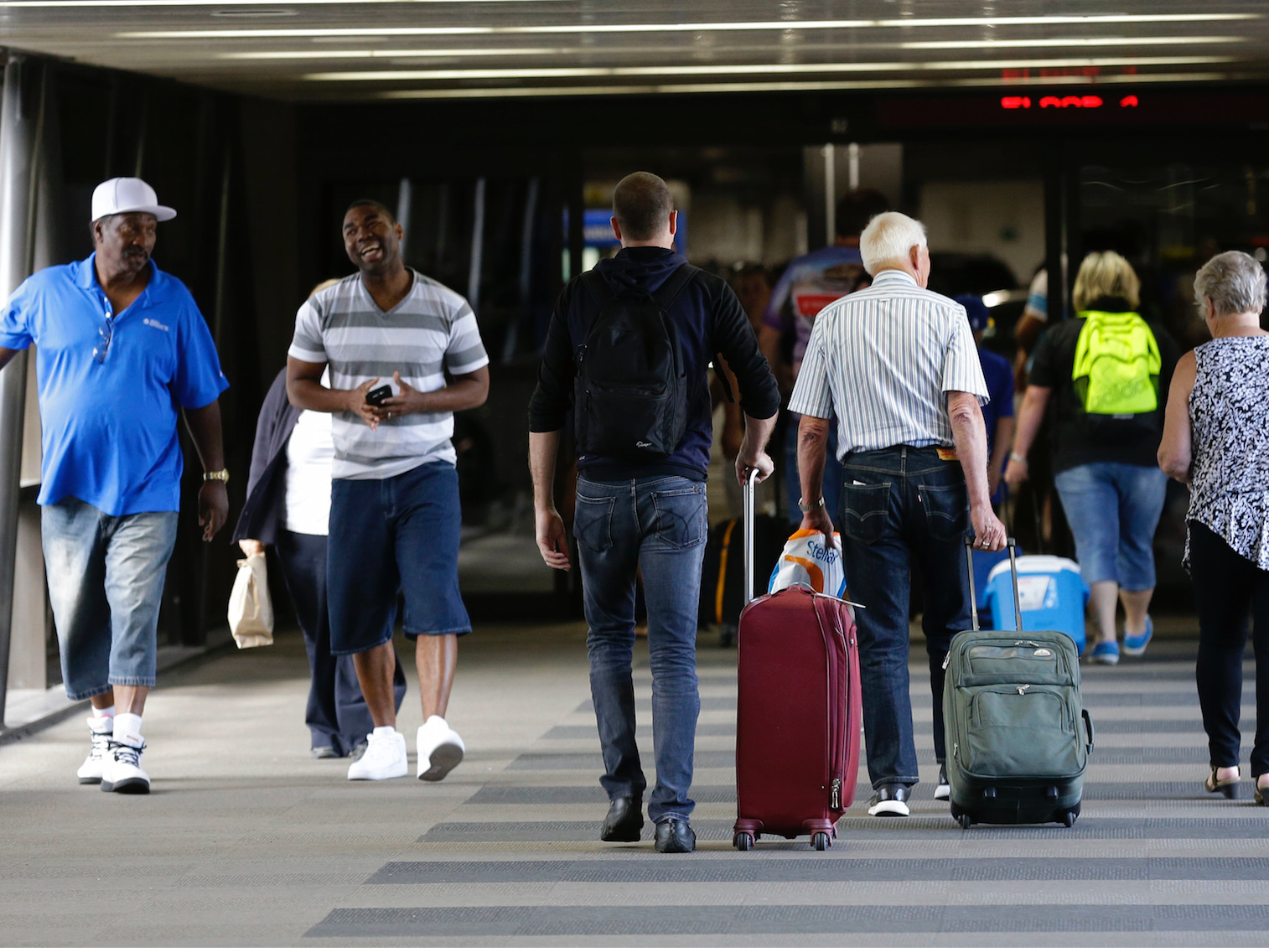The Trump administration has reportedly been drafting a new order with travel restrictions tailored to roughly eight or nine countries that could replace the ban signed by the president in March that targeted six majority-Muslim nations.
The new restrictions would be based on factors such as individual countries’ cooperation with US mandates and the terrorist threat the Trump administration deems each country to pose, The Wall Street Journal reported, citing people familiar with the matter.
The Department of Homeland Security had reportedly identified 17 countries for potential restrictions because they did not meet certain US standards, such as failing to inform the US of known terrorists and failing to issue reliable passports.
The Journal’s sources said roughly half of those countries, upon learning they could be targeted, implemented changes that satisfied the US’s demands. It’s unclear which countries would be affected by the new restrictions.
Unlike the current travel ban, which limited travel to the US from six majority-Muslim countries for 90 days and blocked the admission of refugees for 120 days, the new travel restrictions would not include a time limit. Instead, the countries would face "tailored sanctions commensurate with their deficiencies," and those countries could see the sanctions added or removed as situations change, according to the Journal's sources.
Trump is faced with a decision on whether to keep the current ban in place, approve the DHS's proposal for new restrictions, or even accept the new proposal with some modifications. He must decide by Sunday, the expiration date of the 90-day ban on travelers from Iran, Syria, Yemen, Libya, Somalia, and Sudan.
Though Trump signed the travel ban on March 6, it was beset by legal challenges until June 26, when the Supreme Court issued an order allowing parts of the ban to take effect.
The Supreme Court is set to hear arguments on the ban's constitutionality on October 10, though speculation has been mounting over whether the justices will avoid issuing a verdict on the ban altogether. After Trump makes a decision on Sunday, the justices could rule that a new lawsuit must be introduced or that the lower courts must first handle the new ban.
Trump has offered hints in recent weeks that he wants to at least strengthen the existing travel ban. Trump tweeted early in September after a terrorist attack in London that "the travel ban into the United States should be far larger, tougher and more specific - but stupidly, that would not be politically correct!"
The White House national security adviser, H.R. McMaster, also offered the possibility of a replacement last weekend on ABC's "This Week," saying a new travel ban was "something that we're looking at - how to protect the American people better."
The homeland security spokesman David Lapan on Thursday said it was "certainly possible" that more countries could be included in new travel restrictions.
"It's about the conditions in the countries and the quality of information, and not the political or religious factors," he said, according to the Los Angeles Times. "You have Muslim-majority countries that are in civil war, you have Muslim-majority countries that have major terrorism problems … You could have countries that were not majority-Muslim that would have the same problems."

